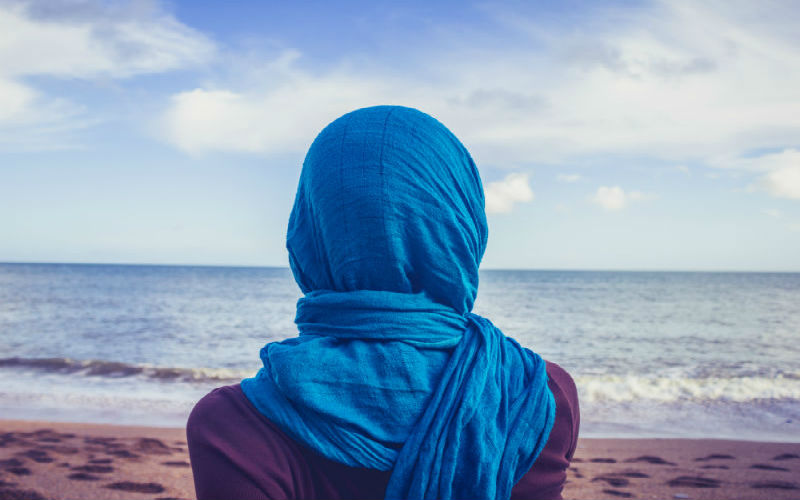“I’m starving,” is uttered from my mouth at least a dozen times a day during Ramadan. Other things like, “Why?” and, “I can’t even…” are also spilled out and it wouldn’t be a lie if I said I have wanted to break my fast many times over the years. My reputation is embarrassing when it comes to my love of food. In fact, ask anyone that knows me and they will say they’re staying away from me during Ramadan. I used to take that as a compliment.
I also used to concentrate on the, “I shouldn’t complain, there are a lot less fortunate people out there,” aspect of fasting, and that worked for a while, but then I became grouchy again. Sure, gratefulness is essential to any soul but the notion of guilt and denial became integral. I felt like Ramadan had to be more than just feeling grateful. It is true, I had been fasting since I was 8, yet I had never taken into consideration that maybe fasting is something more spiritual than abstaining from food and water.
The love for God expressed through hunger seemed, to me, to be ill-fitting,but at the ripe old age of 32, I’ve learnt that it’s a perfect recipe. It takes faith to believe in something that seems so hard, but last year I decided to give it a try.
I needed to shift my focus from “why” to “how”, so last year, I turned to the philosophy of mind over matter, and I decided to learn about Ramadan. I armed myself with lessons, and a copy of the Quran.
That’s the thing with faith, it tests you. There’s that story about the villagers who decided to pray for rain. On the day of the prayer, all the people gathered, but one lady came with an umbrella. That’s faith. I wanted to be the lady with the umbrella.
I stopped using precious time blaming my parents. I stopped blaming having children and therefore not enough time during the day. I stopped blaming the long, arduous, hot day in Dubai that made it hard to survive without water. I stopped going on social media and then I stopped drooling over recipes.
The more I read and researched the more I realized that Ramadan is about the connection of your soul with the Lord. It has nothing to do with deprivation. Actually, wait, it sort of does, but you’re meant to fill your deprivation with other things. It is only when the body is emptied of food (and craves those bread crumbs no one ate the night before) that you can focus on God.
The Quran states:
“Oh you who believe! Fasting is prescribed to you as it was prescribed to those before you, that you many learn piety and righteousness.” (2:183)
This is starting to sound holistic and chirpy, right? Fourteen hours of no eating or drinking is not a chirpy situation, it is a solemn one. Ramadan is not a diet, it is not a fad. It is about precision and meticulous timing. It is about getting your body in tune with the world and everything is intensified.
Hunger is intensified. How else would one feel for the less fortunate? Your fears are intensified. How else would one feel positivity? Anger is intensified. How else is one meant to learn forgiveness? Helplessness is intensified. How else is one to learn that they can’t control everything?
I’m sure you’re wondering if I’m ‘transformed’ and the simple answer is: I think so. It’s only a few days in, but so far my barometer of patience and understanding sits idly between 50-75% and that’s saying a lot. This happened easily once I accepted that Ramadan is hard – fasting, making extra prayers, remembering to be kind, guarding your tongue, remaining vigil – that’s A LOT to take in. But I now see that the hard work also has a huge pay-off.
Call it what you want, but it is not until you try to do Ramadan the soulful way, that things end up going a lot more smoothly.




